Extending the idea of BBMP- CSR collaboration to developing road infrastructure was a good idea. Two projects have already been completed, the most recent one in August. The outcomes are striking, showing a stark contrast in their appearance.
For instance, on the Radiall factory road, on the left side, which is a CSR-funded project, there is a shaded, wide and clean street, with even footpaths. But on the right side, which is a BBMP road, it is dusty, muddy with deep potholes and barely any pedestrian walking space.
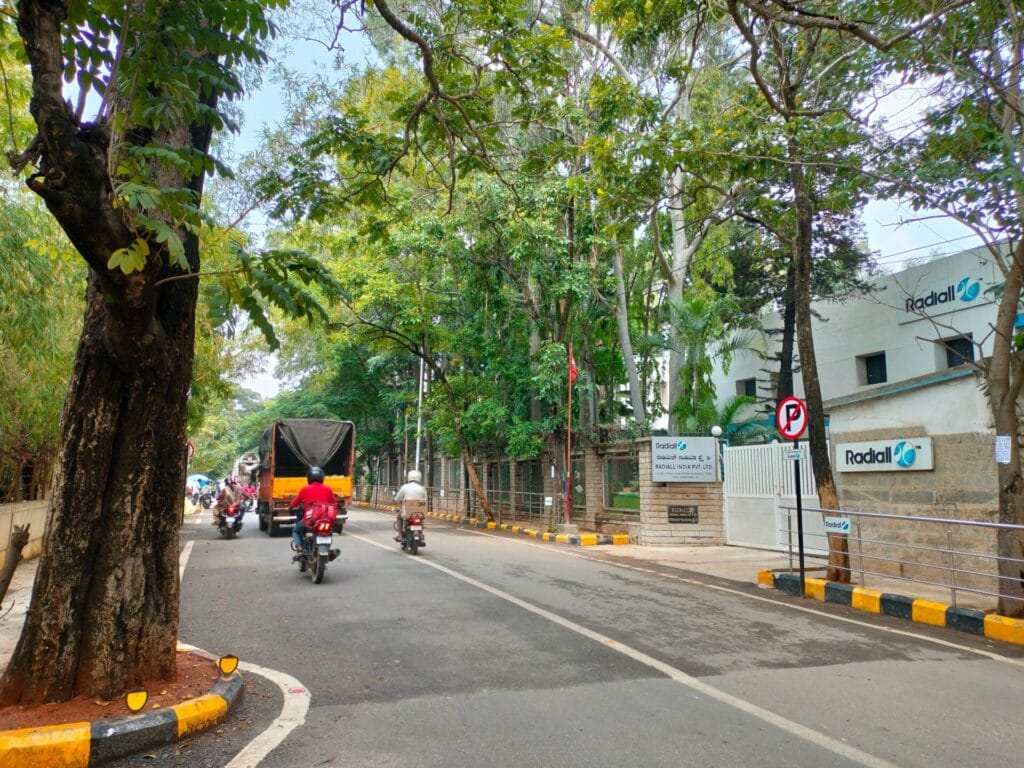
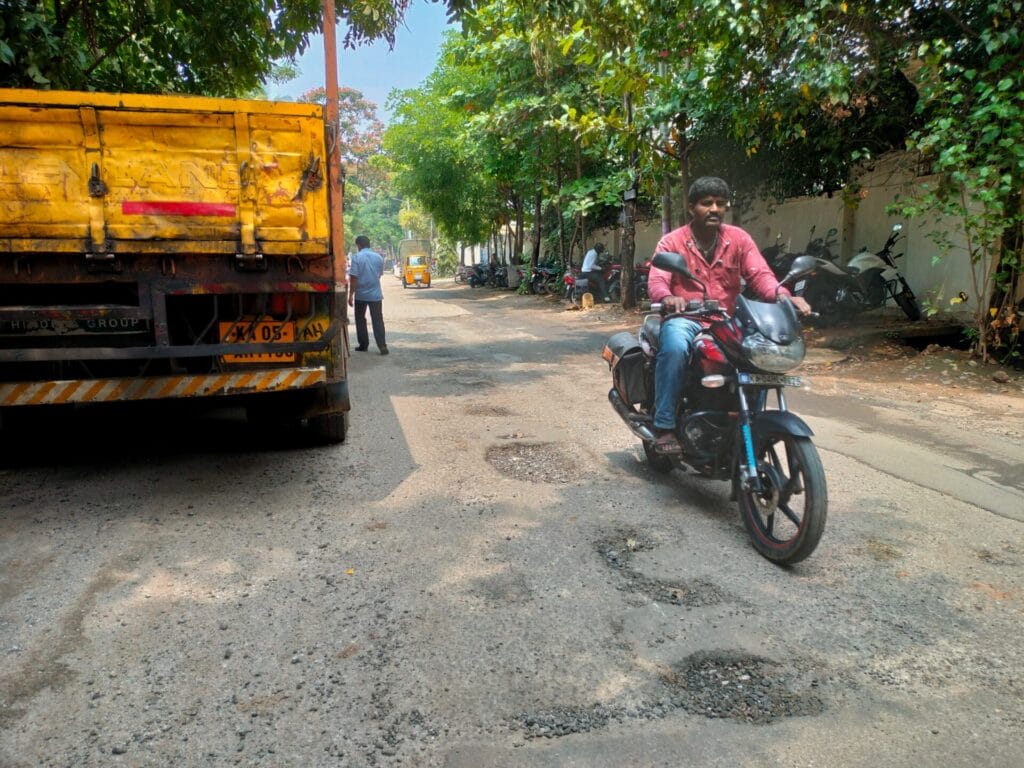
In August 2023, BBMP fixed its second road in the Peenya Industrial area. The project was done through a corporate social responsibility (CSR) initiative led by the private company Radiall. The operation was carried out by a social venture, PotHole Raja. The first model road was also remade in Peenya, in the Dasarahalli Junction, by the private company ABB India Limited, between 2021 and 2022.
An innovative technology
PotHole Raja carried out the operations for both projects under CSR funding and BBMP licensing. PotHole Raja is a Bengaluru-based organisation that uses recycled and sustainable material for road construction and pothole repair.
“For any kind of concrete pavement that has to be done, we use Gridmat Technology, where we use recycled polypropylene plastic,” says Sourabh Kumar, director and co-founder of PotHole Raja.
He claims that this technology reduces carbon emission by 78% and is also pocket-friendly. “For a conventional pavement, it would cost Rs 2,500 per square meter, whereas with Gridmats it costs about Rs. 1700 to Rs 1800,” he adds.
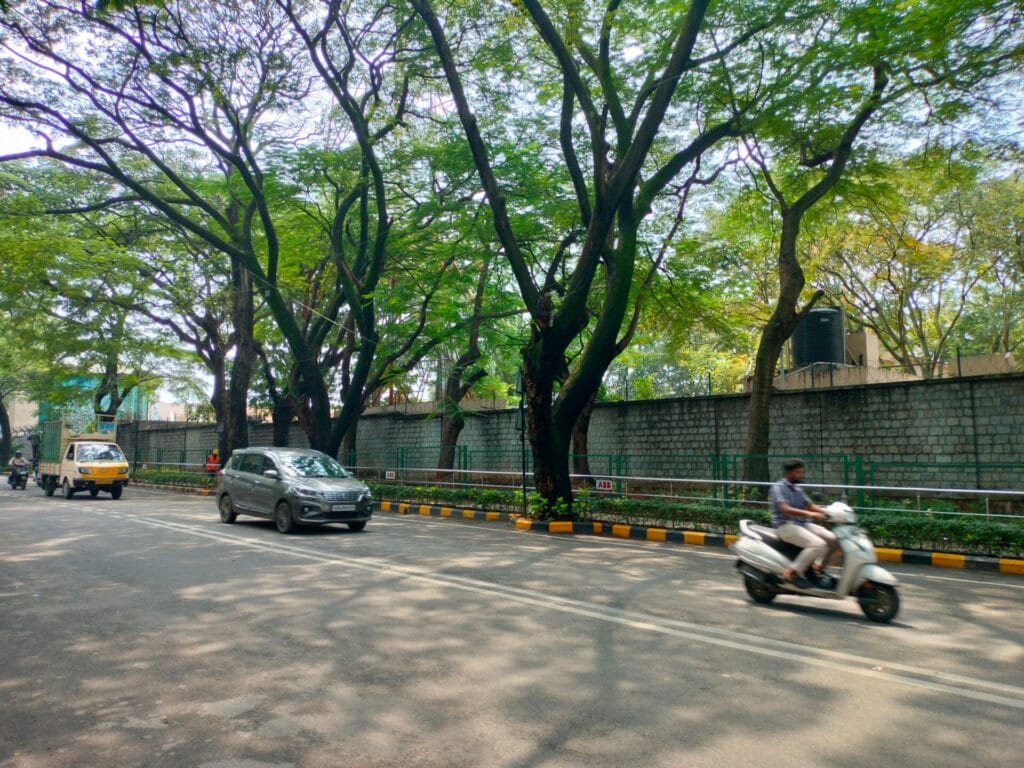
Quality of work
Both the operations were designed with a focus on the overall convenience and safety of citizens. There are amenities such as even, disabled-friendly footpaths and benches and dustbins placed at regular intervals. Additionally, there are 24/7 CCTV surveillance, railing separators for pedestrian safety, and bollards fixed to avoid unauthorised parking and vehicular movement on footpaths. Moreover, the footpaths have been equipped with a drainage system to prevent flash floods during heavy rainfall.
Water is a significant adversary in any construction process. However, plastic being water-repellent, helps prevent any typical water-related issues when conventional materials are used for construction. Additionally, plastic does not break down and remains in its current state, which increases the durability of the road or pavement that is built. “We have gathered theoretical data and conducted lab testing to check the durability of using recycled plastic, and the results indicate that this technology will last for more than 40 years,” says Sourabh.
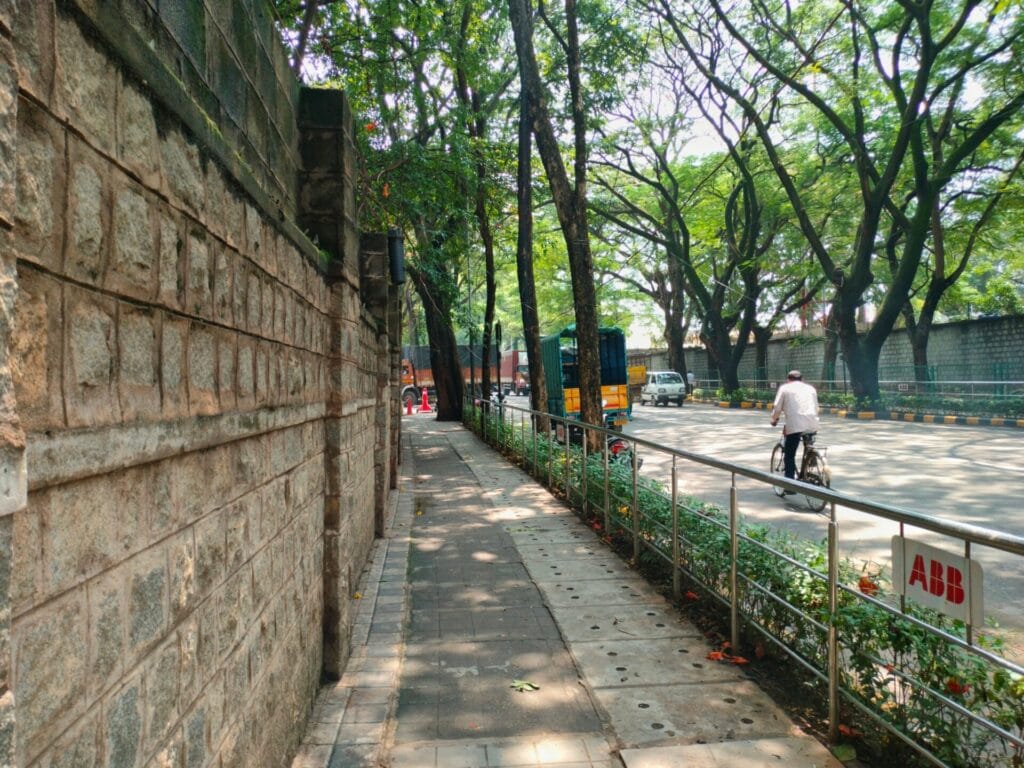
The first model road was remade in two phases- from TVS cross circle to Dasarahalli Junction, roughly adding up to 1.9 kilometres in distance. It cost around Rs 10 crore for the first project, which was completely funded by ABB India Limited. As the roads had already been constructed, Gridmat technology was used only for pavements and footpaths.
“One of the challenges we faced during our first project was that we observed that a lot of factory employees used these roads. There would be congestion during peak hours as there were no footpaths. Additionally, due to the bad drainage system, even slight rainfall would flood the street. We had to analyse these situations during the designing stage,” says Sourabh.
The second model road was completed in August 2023. It extended from NTTF circle till the Radiall Factory, Peenya Industrial Area, which covered an area of about 350 meters.
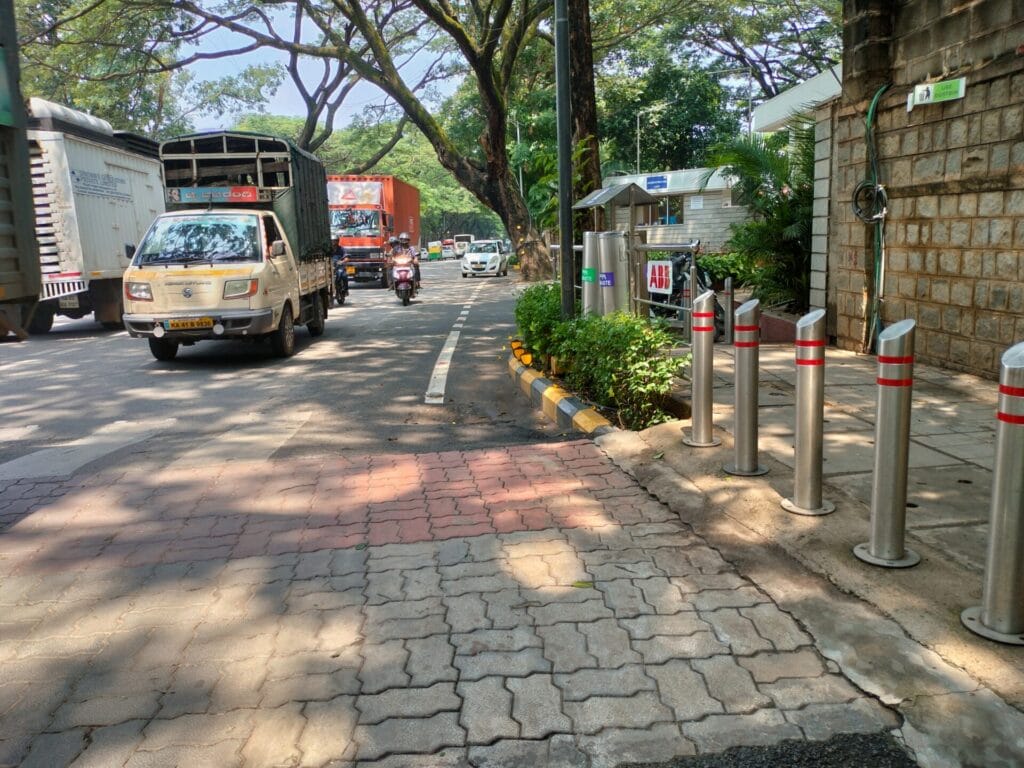
Currently, congestion in the area has reduced-even though heavy-duty vehicles are frequently parked in the streets-due to the installation of the right kind of pavements. “When you travel to Peenya and come to the ABB and Radiall streets, it feels like a different world altogether. It’s very neatly designed, and the pavements are even,” says a pedestrian, who uses the street regularly. “These roads were in pretty bad shape before private companies took over. I use these roads every day to reach my office and now the journey seems pleasant as there is less congestion and a cleaner and green appearance is given to the whole street,” adds another commuter.
Maintenance done everyday
During field visits to these model roads, Citizen Matters spotted workers wiping the railings on the footpaths and picking up dry leaves near the plants. Rangamma, one of the workers, spoke about her schedule. All 12 workers assigned from ABB arrive as early as six in the morning, and begin cleaning the pavements, wiping the railings, picking up garbage, unclogging the drains, and sweeping the roads.
Their work continues till two in the afternoon. There are four supervisors to oversee the tasks accomplished each day. Veerabadrayyaiah, another worker, added that they are given safety equipment, such as jackets, gloves and helmets from the company to work.
During duty hours, they are provided with barricades to warn vehicles. “We have to use the barricades when we are on the street working, for both our safety and to warn the vehicles,” he adds. “There are bins kept at regular intervals for people to dispose garbage, but they still continue to litter the roads, which we have to clean. It’s not a lot to ask, but people should have basic civic responsibility to maintain these streets as well,” says Ramachandrappa, another worker.
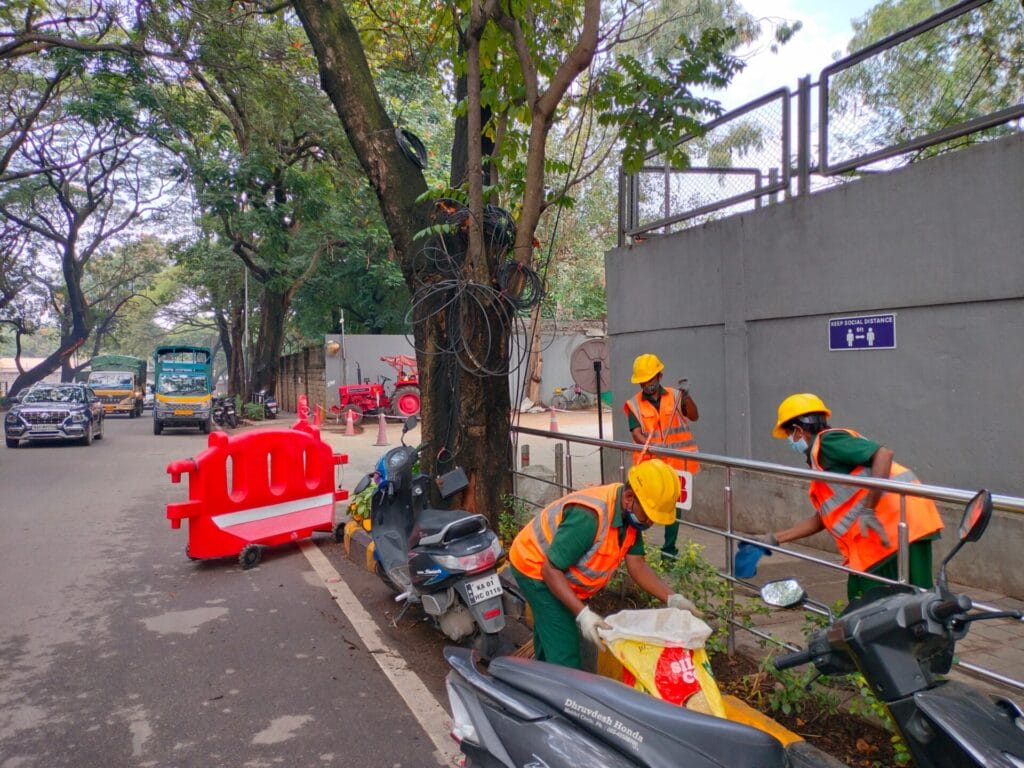
In contrast, within less than 100 meters from these model roads, there are roads riddled with deep potholes, drains emitting a stench from stagnant water, and footpaths that are brittle and uneven. It does indeed reflect two different worlds.
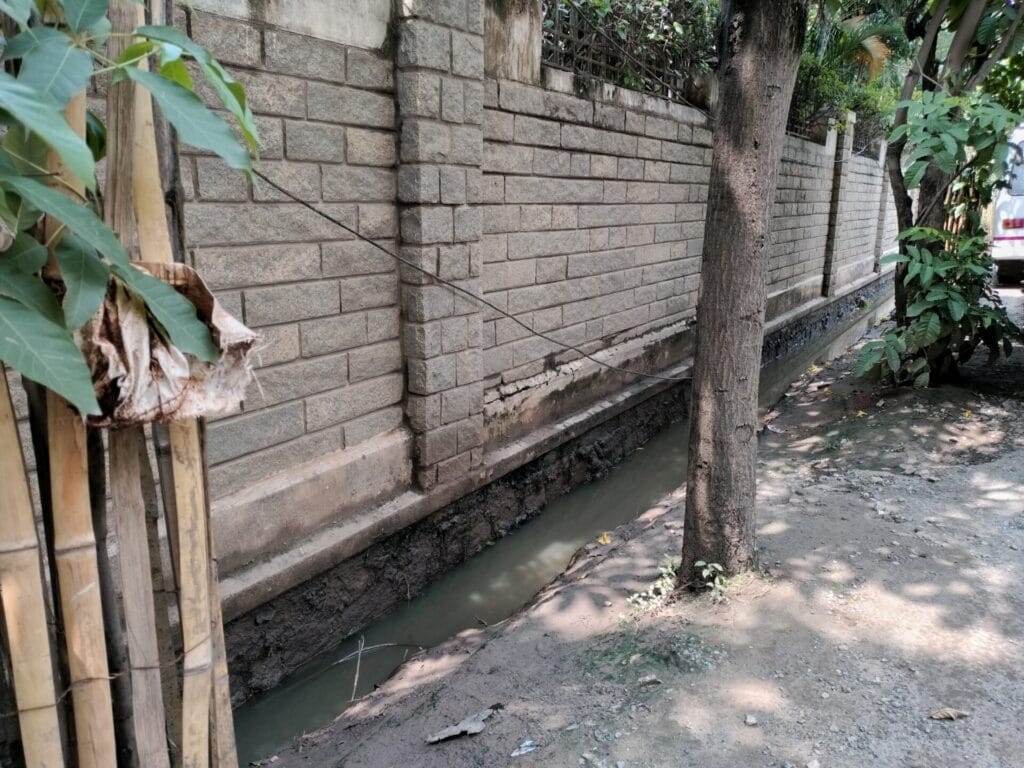
BBMP and funding issue
In CSR initiatives, BBMP only issues the licensing. Funding for the whole project is taken up by the private companies. The municipal authorities are the owners, and the road is adopted by the private agencies for redevelopment and is given back to the BBMP for maintenance. For any technological development to be adopted in infrastructural projects, the government’s assistance is essential. “We do the installation of CCTV, streetlights, fix roads and pavements and hand it over to the authorities. For a duration of one year, we take up any structural or quality-related issues,” says Sourabh.
BBMP issued a projected budget of Rs. 11,163 crore for the fiscal year 2023-24, with its main focus being construction and maintenance of road infrastructure. As reported by Citizen Matters, 63% of the total income for BBMP for the year 2023-24 is estimated to be from its ‘own sources’ while 57% is from grants and transfers.
Over half of BBMP’s primary revenue comes from property tax, yet it remains relatively lower when compared to property tax revenues in other metropolitan cities.
The primary reason for BBMP’s low property tax revenue can be attributed to the utilisation of the Self-Assessment Scheme (SAS), which is based on the unit area value (UAV), and this limits the property tax demand from BBMP. Additionally, the high number of exempted properties and an inefficient collection process further contribute to poor property tax collection for BBMP.
Read more: Pothole menace: Why Bengaluru’s roads resemble the lunar surface
Sukanya Bhaumik, a municipal finance researcher, explains how Indian cities, by law, are not allowed to maintain a deficit in their budgets. “If they cannot spend more than what they are earning, it results in poor funding for infrastructure. Whereas, if they generated less than they anticipated, and spent less, it means poor planning of expenditure and poor expenditure for services. This in turn reflects the poor quality of projects. Due to these factors, BBMP, though capable of raising more funds, ends up in fund crunches. The question of the impact and future of public private partnerships (PPP) through CSR initiatives amidst the claimed fund crunch crisis becomes debatable.”
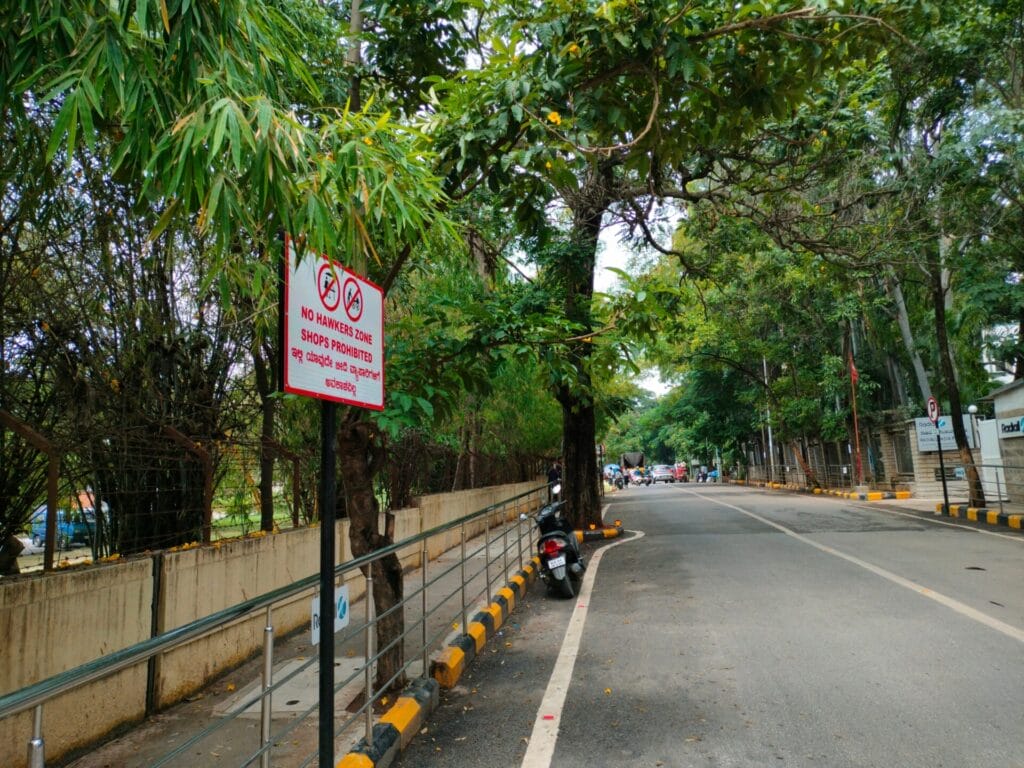
“BBMP has the potential to increase the impact of its budget through effective mopping up of its tax demand and ensuring corruption-free procurement. That is the core task, and its impact will be huge as compared to CSR. We must not believe in the mirage that CSR will dramatically improve BBMP’s quality of work,” says T R Raghunandan, former IAS officer and trustee of CIVIC.
Biju George, Managing Director, Radiall, says: “We believe in giving back to society and making a positive impact in the communities that we operate in globally. Our CSR initiative with PotholeRaja and BBMP to build a model road in Peenya is a step in that direction. We hope that this road will not only enhance the safety and convenience of the citizens but also encourage many more corporates to contribute towards improving infrastructure in our cities. Together we can make a difference.”
Sourabh claims that many organisations are not even aware that collaborations like these can be made with the BBMP. “We have never had any issues with getting the approvals or the license for our initiatives from the BBMP. They have been very supportive and encourage us to come up with more initiatives like these,” he adds.
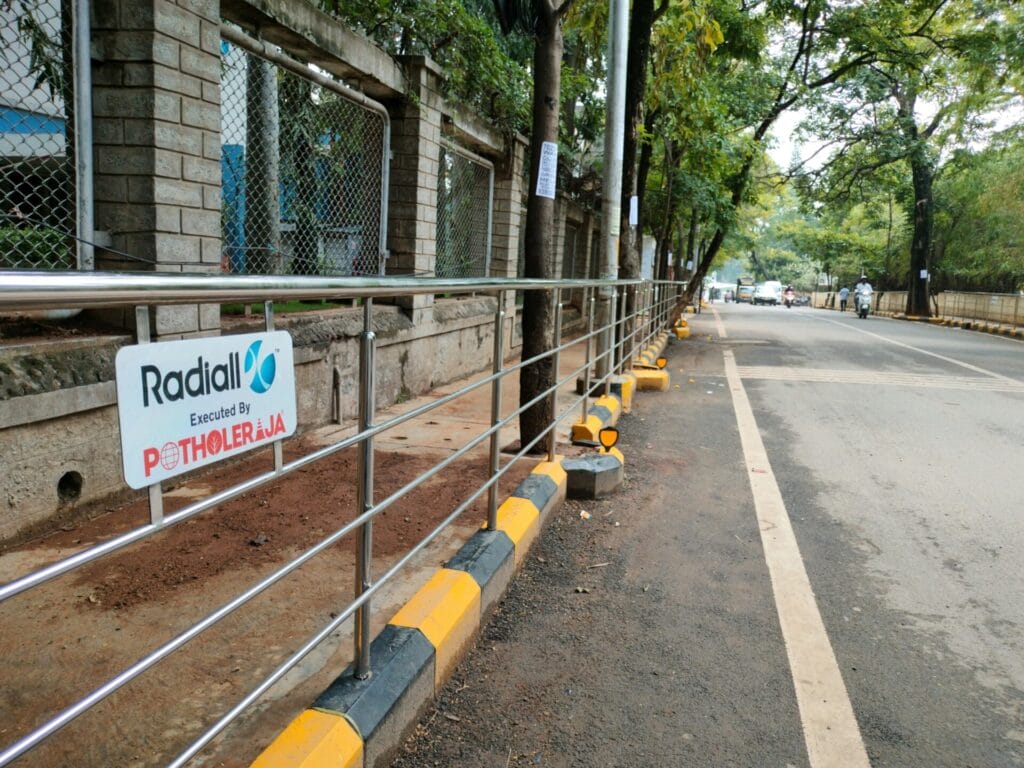
Varying views on CSR initiatives for urban development
“We do not live in a dhaanam (charity) society. We do not want any kind of charity from private companies when BBMP can generate sufficient revenue and meet urban development demands,” says Renuka Viswanathan, Aam Aadmi Party (AAP) candidate from Shantinagar.
Many companies undertake CSR initiatives as part of their company policy. However, these have to be rigorously monitored by the municipal authorities, as some companies might engage in superficial efforts or prioritise tasks that have high visibility but minimal impact, if left unmonitored.
The Karnataka government has a law for transparent procurement policy, which is not implemented. Under this policy, anyone who wants to compete can float an e-tender, anyone can bid after that, and the selection will be based on experience, price and quality of work.
“BBMP should select the best contractor for the job, which would help to eliminate potholes to begin with. I don’t understand the concept of pothole repair. In certain durations, relaying of the roads is of prime importance to eliminate potholes and maintain road infrastructure. Instead of laying roads properly, fiddling with pothole repair is only incurring more costs than effective maintenance,” says Renuka.
Sourabh says: “In any type of construction where conventional methods are followed, there is no joy or fun in doing the typical civil construction work. It is not rocket science. It becomes more about meeting the sustainable criteria for client and government approval.”
Renuka strongly disapproves of PPP and CSR initiatives and believes, “that the company should pay its taxes honestly and not take concessions from the government. By being honest taxpayers, the company provides charitable services that benefit the public.”
While Raghunandan believes that CSR initiatives often lean toward physical infrastructure with little focus on community outcomes, he says not all companies fall into this extreme category. He says that there are many companies that are doing good and impactful work, though in a low-profile manner. The selection of BBMP-CSR partnerships has to be made with careful consideration. “BBMP contracts and procurement processes are very corrupt. At least with appropriate private CSR involved one expects greater watchfulness over leakages and therefore better quality of work,” he adds.
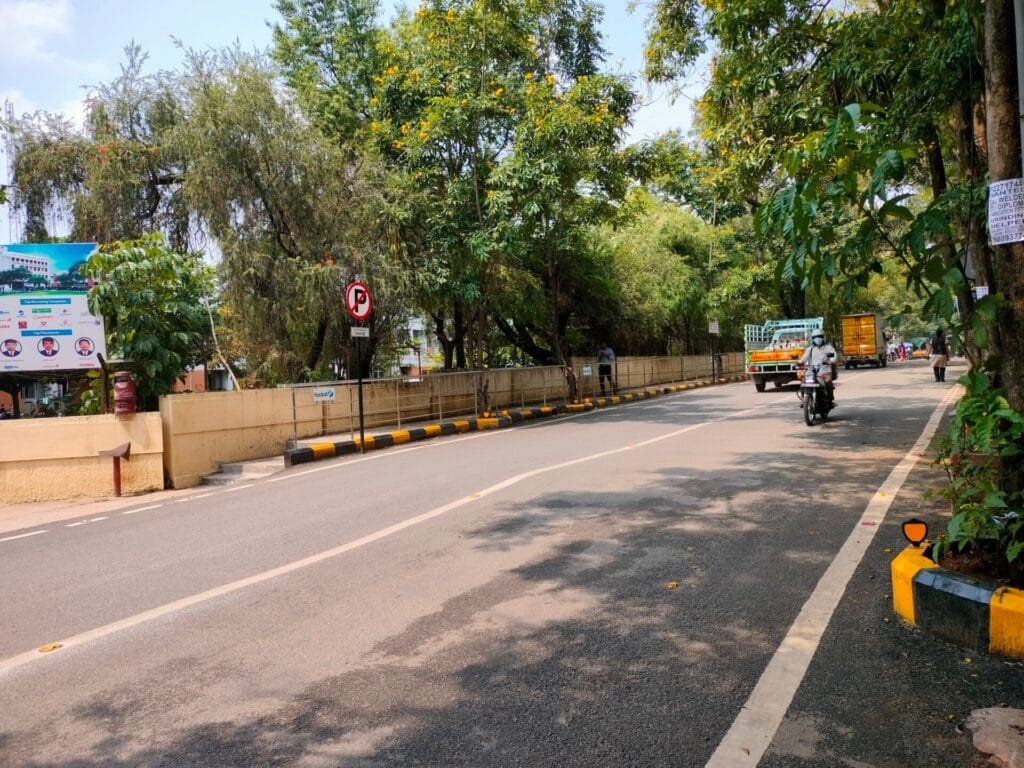
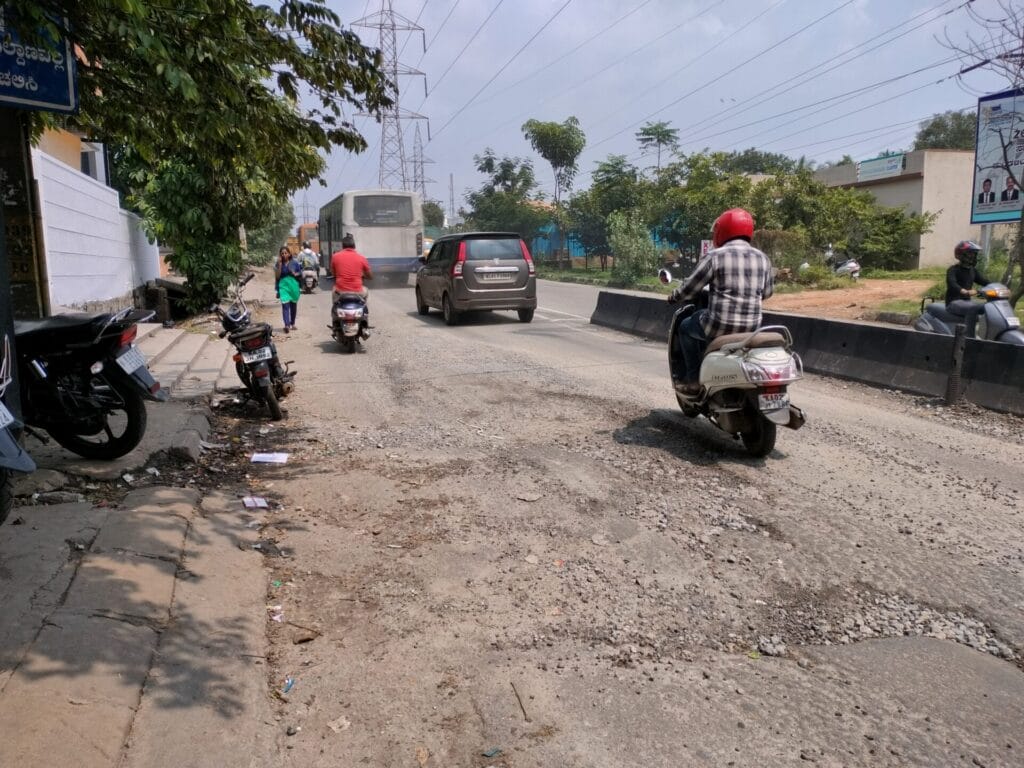
Sukanya holds a favourable view about CSR initiatives. However, she points out that most CSR initiatives tend to focus on specific project, where they take up one lake, one road or one bus stop development. Even though CSR is like a drop in the ocean, it still contributes in small ways towards urban development. “As long as PPP is well executed and done right, there is no problem with CSR and BBMP collaborations,” Sukanya adds.
“The biggest problem is that city development has become the playground of MLAs. In gross violation of the constitutional provisions, elections have not been held for BBMP on one or another pretext for years now,” says Raghunandan.
Emphasising that BBMP has significant responsibilities in its core functional areas, Raghunandan concludes with a thought-provoking question, “If funds are handed over in an ad hoc manner to MLAs to dictate what should be done, and the State and National Finance Commission recommendations are ignored and funds are diverted, then what is the point of talking about people’s participation or CSR?”